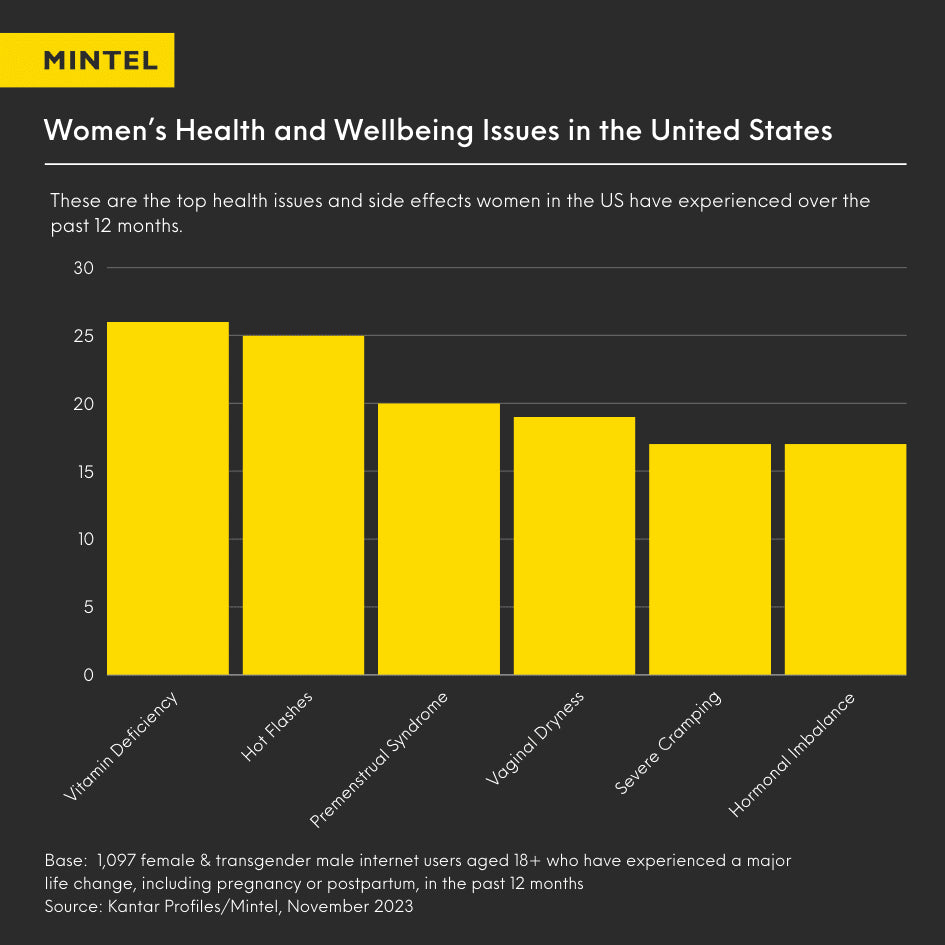Women's Wellness Trends: Evidence-Based Advice, Real Routines and What Matters for Female Health
Estimated Reading Time: 8 minutes
Key Takeaways
- *Women’s wellness is evolving towards evidence-based, personalised routines.*
- *Understanding female health cycles, including menstrual, perimenopause, and menopause is key.*
- *Mental health awareness and emotional wellness are integral parts of modern trends.*
- *Consult credible sources and professionals when adopting new wellness trends.*
- *Building a routine that resonates with your lifestyle is essential for sustainable health.
Table of Contents
- The Rise of Women’s Wellness Trends
- Understanding Female Health Cycles
- Building a Personalised Wellness Routine
- Fad or Fact? Navigating Popular Trends in Women’s Wellness
- The Importance of Mental Health Awareness for Women
- Practical Tips for Evidence-Based, Sustainable Wellness
- Conclusion
The Rise of Women’s Wellness Trends
Gone are the days when women's health and wellness were constrained by generic models designed primarily with men in mind. Women’s wellness trends are rapidly evolving, becoming more inclusive, innovative, and focused on individual needs. Women’s physiology is complex and variable, requiring bespoke approaches that respect the unique rhythms of female life-stages, from the monthly cycle to perimenopause and menopause.
In a world brimming with wellness advice, women's wellness trends have taken centre stage, focusing on individual health nuances, hormonal cycles, and life stages. This shift from generic advice to woman-centric understanding is revolutionising how women prioritise their health. Greater attention is being given to research on topics like hormonal cycles, fertility, and menopause that directly affect female health. Pertinent health discussions no longer lurk in dark corners but are being amplified by social media, thereby demystifying complex female health issues. Enter the realm of FemTech - technology that's paving the way for individual wellness, deformation of taboos, and the rise of cycle syncing routines. There has never been a more exciting and empowering time for women's wellness trends. (Source: meetglimpse.com)
Understanding Female Health Cycles
Unlike the daily testosterone cycle in men, women’s health is profoundly influenced by their 28-day hormone cycle. This disparity requires varying health and wellness routines for each gender. Advancements in the understanding of female health cycles have led to progressive paradigms like cycle syncing. By adjusting exercise and nutrition to menstrual phases, women can optimise their energy, recovery, and mood. This is all the more relevant during perimenopause and menopause, a time that may have unique symptoms requiring evidence-based, tailored strategies to promote wellness.
Understanding your health cycle isn’t about conforming but carving out a personalised wellness path that meets your individual needs. (Source: globalwellnessinstitute.org)
Building a Personalised Wellness Routine
Building a wellness routine that fits your lifestyle is crucial. What works for one may not work for others. An optimal morning routine can set the tone for your day. Upon waking, resist the temptation to reach for your phone. Start your day with hydration, a brief stretch or stroll, and perhaps some reflective journaling. Such daily rituals can help prime your focus and boost your mood.
Prioritise strength training in your fitness routine. It is not only beneficial for muscle and bone health, but it also supports mood and metabolic stability, especially significant for women undergoing perimenopause and menopause. Remember, wellness is not all black and white. Avoid all-or-nothing thinking. Consistency and realism are integral to a lasting wellness routine. (Source: drbrighten.com)
Fad or Fact? Navigating Popular Trends in Women’s Wellness
The wellness landscape is teeming with trends, but not all of them are created equal, especially when we consider women's health. Take intermittent fasting, for instance. While it has potential benefits, women need to beware of its implications on their hormonal health and fertility. Meanwhile, new research suggests that creatine can be beneficial for women’s muscle, brain, and bone health, but it’s essential to seek professional advice on dosage and safety.
When it comes to supplements, focus on quality over quantity and adhere to guidance from credible sources. And remember, a balanced diet is key. With protein-rich diets now widely endorsed for muscle health, women also need to ensure adequate fibre intake for gut health. When it comes to the latest wellness therapies, approach them with an open mind, but always consult the research. (Source: drbrighten.com)
The Importance of Mental Health Awareness for Women
Discussing emotional wellness is no longer stigmatised, due in part to the increase of mental health awareness for women on social media. A focus on mental health has become a crucial component of the women's wellness trends engaging public attention. Remarkably, platforms such as Instagram and Facebook provide safe spaces for women to share their experiences with postnatal anxiety, PMDD, among other mental health issues.
Technology and social media have revolutionised the way we communicate, making it easier for women to find online communities and support groups where they can share their experiences without fear of judgement. New mothers, for example, often find these platforms comforting as they navigate the challenges of motherhood. (source: globalwellnessinstitute.org)
Practical Tips for Evidence-Based, Sustainable Wellness
In the age of influencers and viral internet trends, it's critical to rely on information from trusted, professional, and accredited sources. They can help demystify the plethora of advice online and enable you to create a wellness routine based on evidence, rather than hype. Websites like Healthdirect offer reputable advice, so it's worth bookmarking such resources.
Rather than strictly aligning to the latest fad, construct wellness routines that are suitable and realistic to your life. Experiment and adapt according to your needs. Remember, it's about listening to your body and respecting how YOU feel, instead of religiously towing the line of what's currently fashionable.
Finally, practice self-compassion. You are allowed to try out different wellness trends and disregard those that do not align with your lifestyle or preferences. The beauty of personal wellness is its fluidity—and it's completely acceptable to reshape your routine as you learn what works best for you!
Conclusion
Ultimately, the value of women's wellness trends is in their ability to be personalised; moulded to accommodate the unique rhythm of your life and health. This, coupled with a solid foundation of high-quality research, results in a wellness routine specifically designed for the user.
I encourage you to experiment and open dialogues about your experiences; ask questions and seek out the evidence before diving headfirst into new trends. Feel free to drop a comment below, share your own experiences, and stay tuned for more evidence-based wellness advice.
FAQs
1. What are women's wellness trends?
Women's wellness trends refer to the growing focus on wellness advice that is tailored to women's unique physiology, rather than generic health advice that doesn't take gender specifics into consideration. These trends include strength training advice, mental health support, and personalising wellness routines.
2. Should I follow all wellness trends?
No, you should not feel pressured to adopt all wellness trends. Not every trend might work for your lifestyle or body. The best approach is to do some research, talk to professionals, try out new things, and decide what works best for you.
3. Why is strength training beneficial for women, especially during perimenopause and menopause?
Strength training for women, particularly during perimenopause and menopause, is beneficial for several reasons. First, this type of training is excellent for maintaining muscle mass, which often decreases during this period. Moreover, strength training can aid bone health, improve mood, and support metabolic stability.
4. What is femtech?
Femtech (or female technology) refers to software, diagnostics, products, and services that utilise technology to focus on women's health. This includes fertility solutions, period-tracking apps, pregnancy and nursing care, women's sexual wellness, and reproductive system health care.
5. How are social media and technology impacting women’s wellness trends?
Social media helps create a more open dialogue about topics that were once considered taboo. Platforms also allow for the exchange of tips and advice between women from diverse backgrounds. Additionally, technological advancements such as femtech contribute to the personalised approach in female wellness trends.





